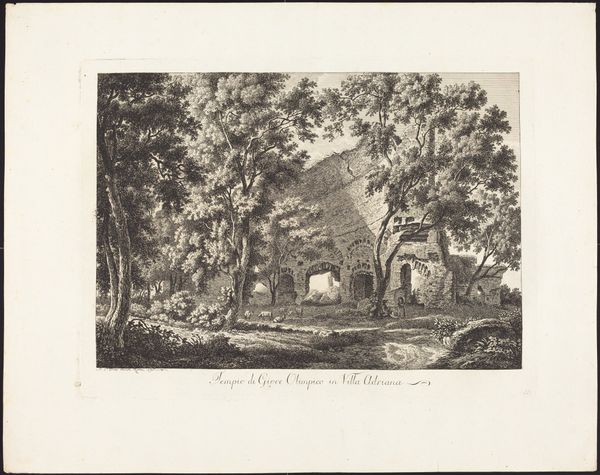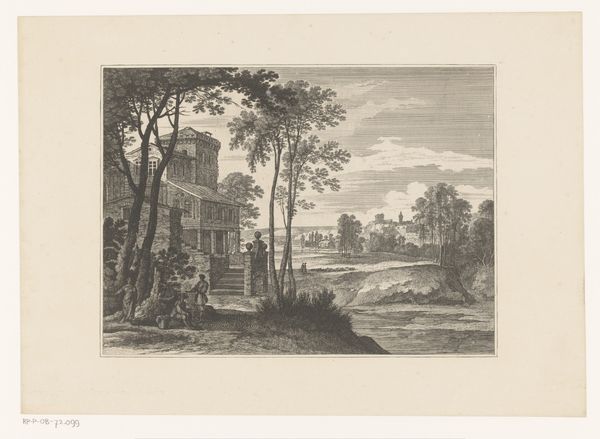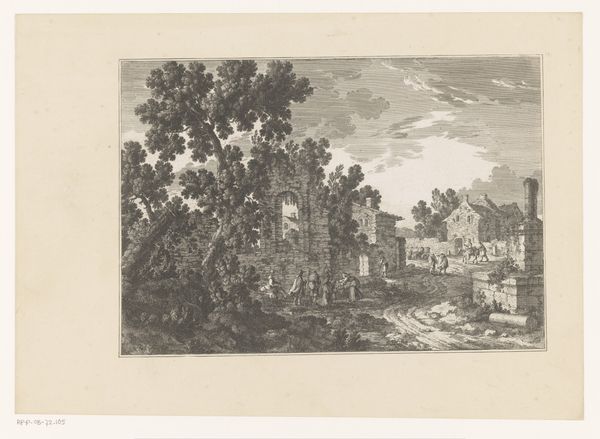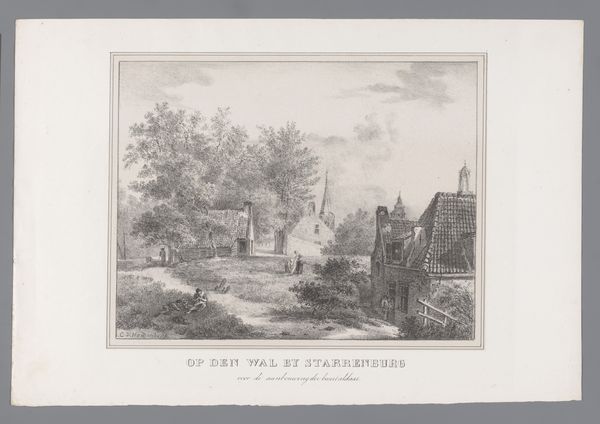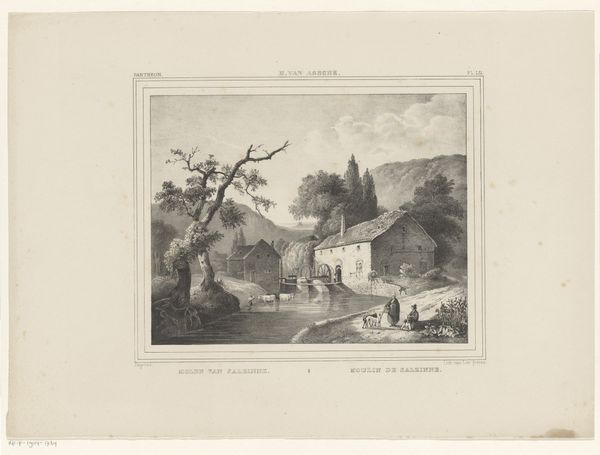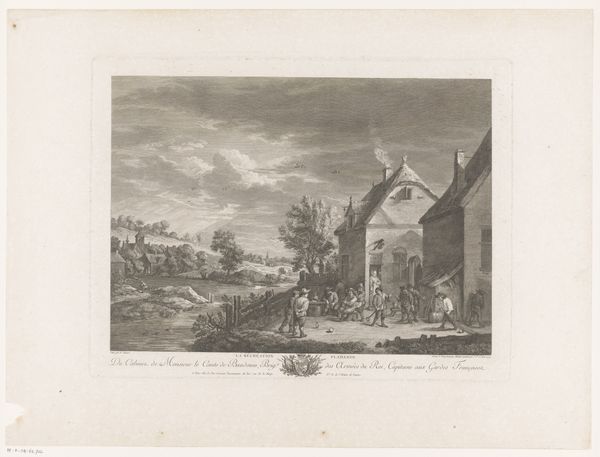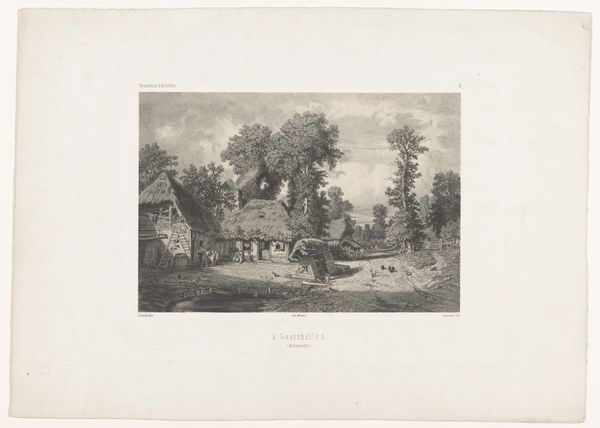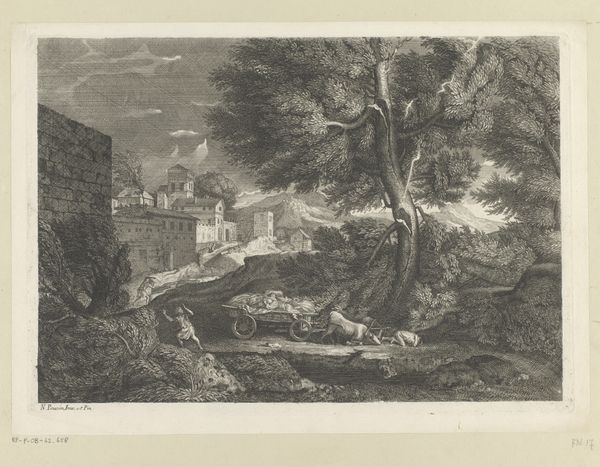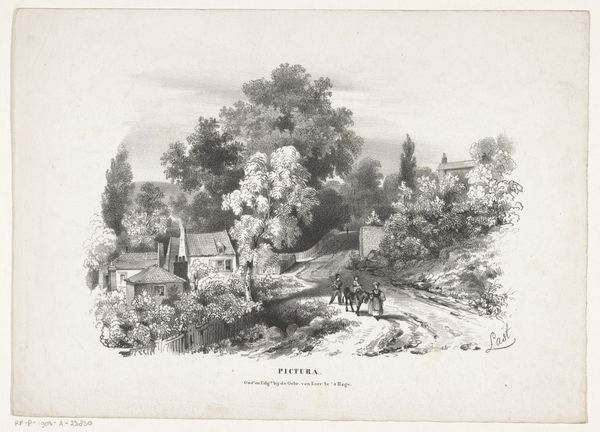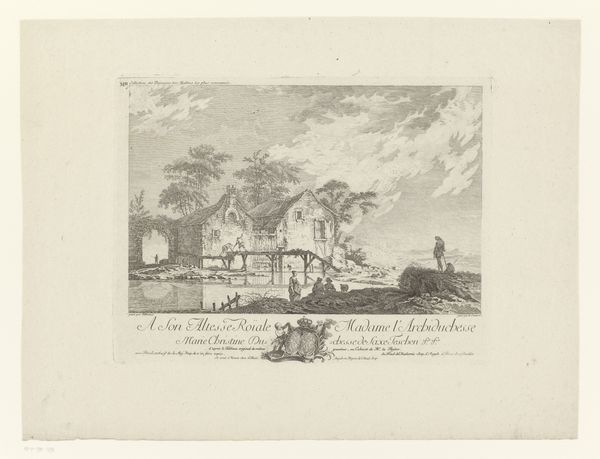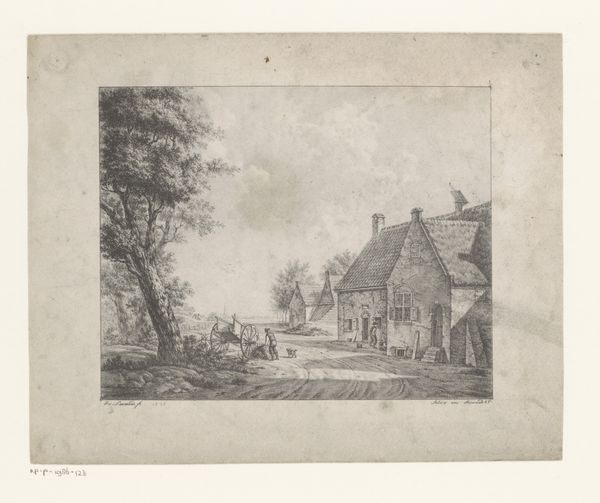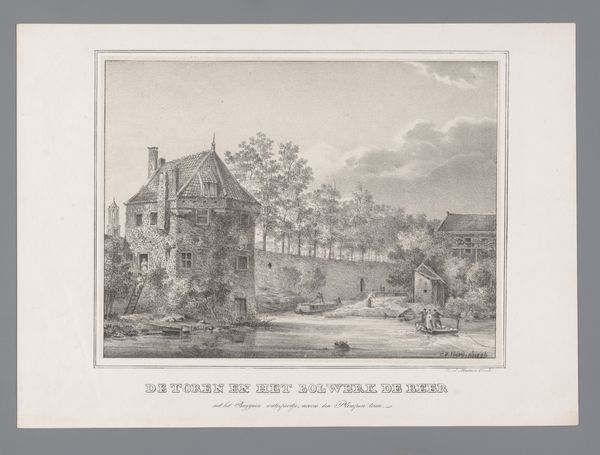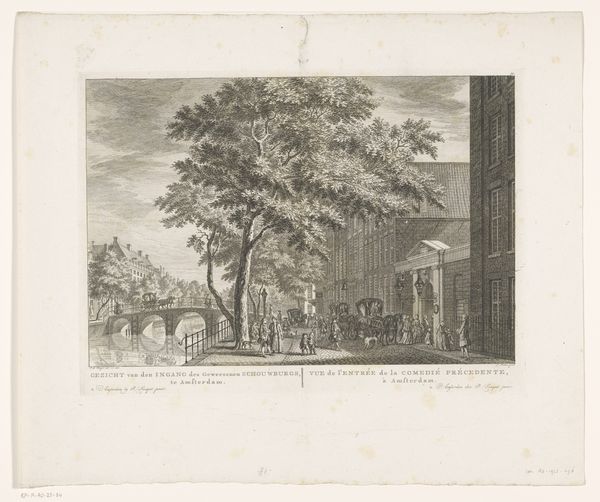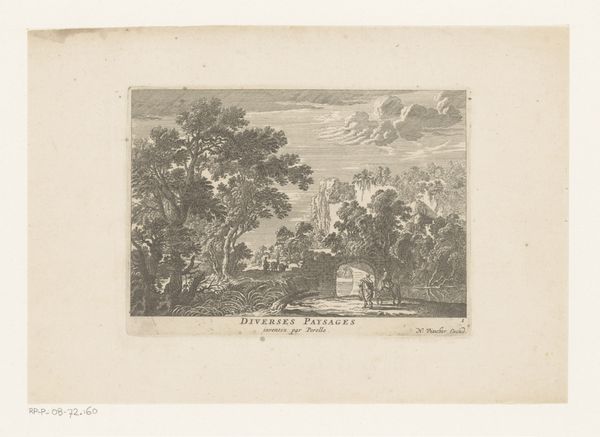
print, etching, engraving, architecture
#
aged paper
#
light pencil work
#
pale palette
#
pale colours
# print
#
etching
#
pencil sketch
#
landscape
#
white palette
#
romanticism
#
cityscape
#
engraving
#
architecture
Dimensions: height 363 mm, width 553 mm
Copyright: Rijks Museum: Open Domain
Curator: What an evocative etching! Julien Michel Gué created this work, "Ontwerp voor theaterdecor met vervallen gebouwen in landelijke omgeving," around 1825. Editor: It's dreamlike, almost unsettling. There’s a strong contrast between the delicate linework and the imposing, decaying structures. A ghostly calm seems to hover. Curator: Gué captures that Romantic tension beautifully, doesn’t he? You're right—the image carries an air of ruin, suggestive of larger social commentaries regarding obsolescence. Consider the position of the theater set itself: What commentary can be extracted from such an inherently performative space, as constructed on these ruins? Editor: Absolutely. Those figures in the foreground, seemingly engrossed in conversation, almost amplify the decay. Are they discussing the state of affairs, oblivious to the historical context bearing down on them, or perhaps even negotiating for the space? It evokes a kind of quiet resilience, like life blooming amidst abandonment. Notice how the artist utilizes trees like organic framing devices on either side. They pull the viewer into the depicted space, yet trap one inside the temporality and emotion. Curator: And there's the visual weight of the buildings set against what is otherwise a tranquil countryside scene. We should think, too, about this work’s role as a “theater design” - its existence meant to serve an ultimate form of staged reality. Where does this, itself, leave us? The artwork becomes layered with commentary: the real decaying place, its representation as an idealized, Romanticized view for staging other actions. Gué masterfully manipulates reality and artifice. Editor: Precisely! This composition invites an emotional connection—that delicate light on the crumbling facades hinting at resilience. Beyond the aesthetics, it is the artwork's profound understanding of the passage of time, social transformation, and enduring symbolism that stays with me. Curator: For me, the etching stands as an exercise of deconstruction and reconstruction. By confronting this work we enter a powerful and lingering narrative about societal and historical complexities.
Comments
No comments
Be the first to comment and join the conversation on the ultimate creative platform.
